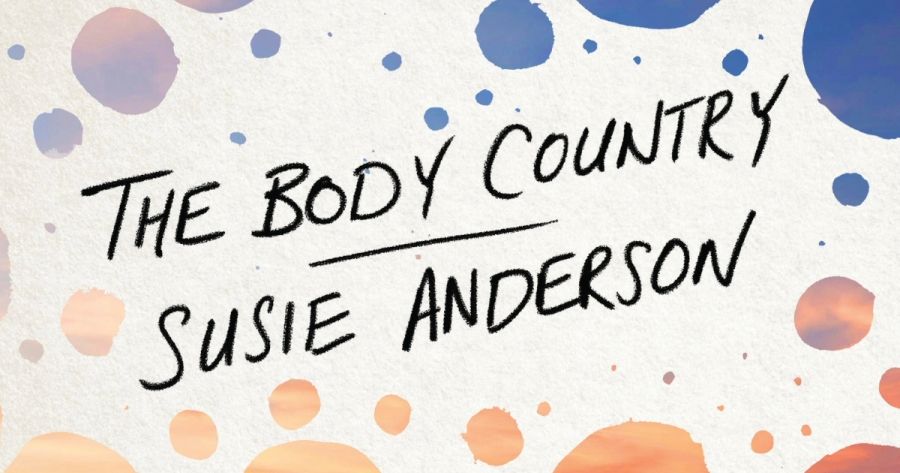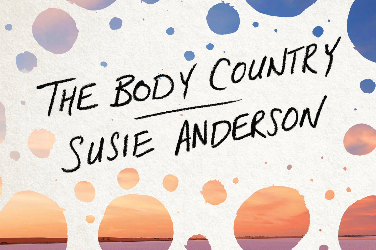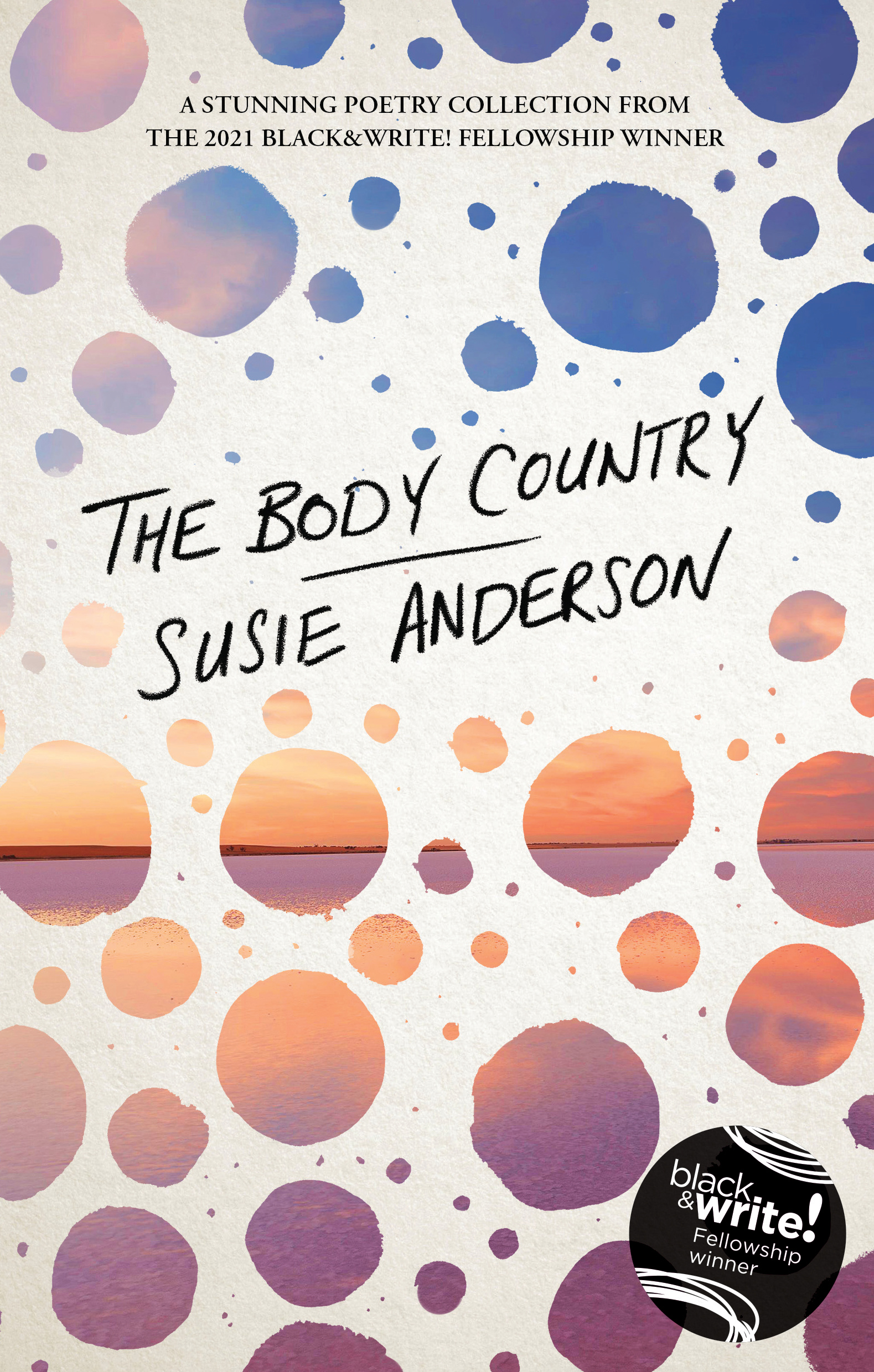
- Free Article: No
- Contents Category: Poetry
- Review Article: Yes
- Article Title: Prop, stage, star
- Article Subtitle: Ode to Country
- Online Only: No
- Custom Highlight Text:
There is no denying the power of poetry as thoughtful story-telling, a form of expression free from rules, conventions. It allows a safe environment for experimentation, free from the confines of traditionalism. Portraits in words, detailing the ride of life and thoughts of the mind are painted onto the canvas, where the placement of verses on a page can matter as much as the choices of words themselves.
- Featured Image (400px * 250px):

- Alt Tag (Featured Image): Bebe Backhouse-Oliver reviews 'The Body Country' by Susie Anderson
- Book 1 Title: The Body Country
- Book 1 Biblio: Hachette, $26.99 pb, 95 pp
- Book 1 Cover Small (400 x 600):

- Book 1 Cover (800 x 1200):

Concluding with ‘territories’, a homage to galactic origins and grounded destiny, this final chapter depicts a full circled coda to the journey Anderson was on, highlighting her progress and evolution; a reminder that so much can, and will, happen in life – you can be removed from your mother Country by choice or force; you can be excluded from the sounds of your native tongue; and you can fall in love without ever saying a word. Through all of this, and whatever else, your body is with you. It will not desert you. It will be the container for your mind when you witness and decipher art. It will be the portal for your memories when you want to feel like a child again. It is a finite machine which allows an infinite existence in spirit. As an Aboriginal woman, Susie has cemented this in her own legacy of self.
There are complexities and simplicities throughout the collection, connected by an essay Anderson wrote for the Faber Academy in 2019, aptly titled The Body Country. In her own words, the book recognises that ‘a tension between loving and knowing your body is important, while fearing its frailty and temporality’. I felt drawn into her academic prompts, and questioned how I feel when I am in the open; how I connect to the universal elements of the natural world; and, perhaps most importantly, how I feel about myself in moments of turmoil and doubt, and even tranquillity. Between the bookends, in the realm of ‘chorus’ – a delicate suite of animalistic dedications – I walked down the garden path of my own infancy: ‘The trampoline was simultaneously a prop, the stage, the star.’
Throughout the section ‘when artists talk about country’, Susie responds to artistic prompts over varying times and differing places, from sound blasted into the Lutruwita sky from a helicopter at Dark Mofo, to the entire contents of the National Gallery of Victoria. In a piece written after artist Amala Groom, it seems that Anderson prophesied the content in the subsequent chapters: ‘Sis, where are you trying to go / I am going to where I am known.’
Deploying splashes of Wergaia words, Anderson deliberately chose to reference an early dictionary of the language as a dedication to her great-grandmother, who contributed to the creation of that publication. This honouring serves as one of many commitments to the roots and origins which birthed her and speaks to the essence of First Nations people the land over. Dedications to Water Country inspired in me a refreshed need to be mindful and careful, while taking pride in where it is I come from.
Further on and going within, she writes of love, desire, and the pain which accompanies this, perhaps all too often. Here, I found a different side to her, one which was fragile yet determined; vulnerable yet confident. Like reading a journal filled with unsent love notes, at times I felt I was peering into my own past, exploring my romances and losses, and words unspoken for fear of unreciprocated responses: ‘If I could have seen your lips once more I would have written down their shape.’
What struck me throughout this collection was Anderson’s ability to weave each chapter together with threads of growth; a confidence which comes from committed endurance. Driving these, of course, were those muses of art, romance, heartache, and belonging, catalysed by a life which could only be lived in the place she grew up.
The Body Country is an incomparable read which took me by surprise. My perspectives were challenged and refreshed. I travelled through imagination and history. I relived love-induced anguish and remembered the temporality of life, which triggered me; but before I closed the book, Susie was sure to give me a gift. When recommending how I could fall in love with my hometown, she noted the sky’s role in creating certainty during periods of chaos or cloud: ‘it knew everything then / knows everything still / including which way you will go next’. Suddenly, I was calm and powerful; determined to traverse the vastness of my body, to hopefully know my own depth, that of my love, and meditate on the deep, time-igniting energy that is a connection to Country.


Comments powered by CComment